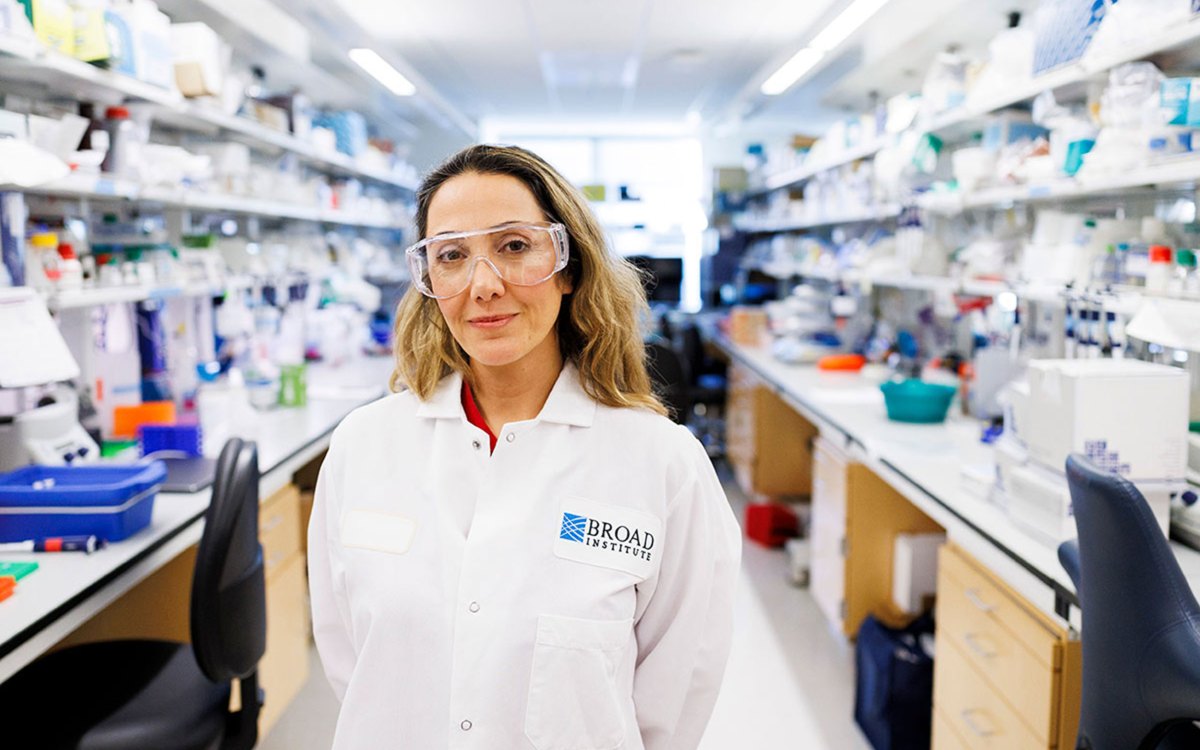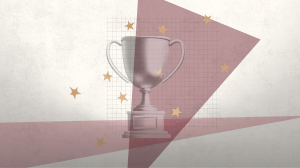Tag: History
-
Health
Humans hot, sweaty, natural-born runners
Hairless, clawless, and largely weaponless, ancient humans used the unlikely combination of sweatiness and relentlessness to gain the upper hand over their faster, stronger, generally more dangerous animal prey, Harvard Anthropology Professor Daniel Lieberman said Thursday (April 12).
-
Arts & Culture
Albert Einstein, Civil Rights activist
Einstein’s response to the racism and segregation he found in Princeton was to cultivate relationships in the town’s African-American community. Jerome and Taylor interviewed members of that community who still remember the white-haired, disheveled figure of Einstein strolling through their streets, stopping to chat with the inhabitants, and handing out candy to local children.
-
Nation & World
Notorious U.S. Supreme Court decision is revisited
Dred Scott. You don’t have to be a lawyer or historian to have that name conjure up feelings of horror and injustice.
-
Arts & Culture
The ‘Last Ruskinians’: Detail, detail, detail
Many of the paintings and drawings in the Fogg Museum’s new exhibition “The Last Ruskinians: Charles Eliot Norton, Charles Herbert Moore, and Their Circle” are astounding for their jewel-like detail and trompe l’oeil realism, but to regard them as a higher sort of eye candy would be to miss the point.
-
Arts & Culture
A denarius in hand is worth two in a book
On exhibit at the Harvard University Art Museums are wide and deep collections that range from ancient Greece statuary to Ottoman textiles to Max Beckmann masterpieces to contemporary American graphic arts. As stunning and numerous as are the objects on display, significant portions of the museums’ collections are not always up on the walls but…
-
Arts & Culture
A new look at the ‘Good War’
World War II has been called “The Good War,” often in contrast to later conflicts whose moral justification is seen as more ambivalent. But how did the Good War become good, and what aspects of it had to be suppressed to qualify it for that title? Three scholars attempted to answer that question at a…
-
Arts & Culture
Modern Girl Project views women between the wars
When American women won the right to vote in 1919, the logical question was, What next? Suffragists had the answer ready: full enjoyment of civil and domestic life for women, equal to that of men. But suffragists found out that what was next was not much. It would be decades before American women gained anything…
-
Campus & Community
Edward Willett Wagner
Edward Willett Wagner, Professor of Korean Studies at Harvard for thirty-five years and founder of Korean studies in the United States, passed away at the age of 77 on December 7, 2001. He left his wife, Namhi Kim Wagner; two sons, Robert Camner and J. Christopher Wagner; three stepdaughters, Yunghi Choi Wagner, Sokhi Choi Wagner,…
-
Arts & Culture
Week of events at Radcliffe links history and biography
Twentieth century American historian Susan Ware will lead another workshop group. She’s an independent scholar who has written several biographies, including one of Earhart. At the Radcliffe Institute from 1997 to 2005, Ware was editor of volume five of the biographical dictionary “Notable American Women.”
-
Campus & Community
Serhii Plokhii is new Hrushevs’kyi Professor of Ukrainian History
Serhii Plokhii, a prolific scholar whose studies have opened up a new pathway of studying Ukraine’s relationship with Eastern and Central Europe, has been appointed Hrushevs’kyi Professor of Ukrainian History in the Faculty of Arts and Sciences (FAS), effective July 1.
-
Nation & World
Journalism less appreciated, still essential, says NPR’s Daniel Schorr
The public has a much more jaundiced opinion about journalists than the almost heroic image they had during the Watergate era, but society needs the press to do its job just the same, National Public Radio analyst Daniel Schorr said Tuesday (March 13). “What is clear is that the press can no longer rely on…
-
Arts & Culture
Music, words to honor Longfellow on poet’s 200th birthday
The Boston Landmarks Orchestra will celebrate the 200th anniversary of the birth of poet Henry Wadsworth Longfellow (1807-1882) with a March 25 tribute at Sanders Theatre.
-
Campus & Community
This month in Harvard history
March 5, 1954 — The Faculty of Arts and Sciences approves the Special Standing Program recently proposed by the Educational Policy Committee. The program allows specially qualified high-school students who have completed 11th grade to enter as freshmen, specially qualified freshmen to enter as advanced-standing sophomores, and honors candidates to have one or two required…
-
Campus & Community
Seminar on gender history seeks participants
The March 15 application deadline for “Writing Past Lives: Biography as History” — the Schlesinger Library’s summer seminar on gender history — is fast approaching. Established scholars, writers, and advanced graduate students in U.S. history and gender studies are invited to apply.
-
Campus & Community
Arthur Schlesinger Jr. dies at 89
Arthur M. Schlesinger Jr., a member of Harvard’s History Department from 1954 until 1962, died Feb. 27 in New York City. He was 89.
-
Nation & World
Schulz: U.S. should take stand on torture
“The ancient Greeks would have been ashamed of us.” That was the assessment of Amnesty International USA’s former executive director William Schulz of the U.S. military’s abuses of prisoners at Iraq’s Abu Ghraib prison in 2004. Schulz said that Greeks and Romans routinely tortured slaves as a way to establish the truth of a situation…
-
Science & Tech
Medieval Islamic architecture presages 20th century mathematics
Intricate decorative tilework found in medieval architecture across the Islamic world appears to exhibit advanced decagonal quasicrystal geometry – a concept discovered by Western mathematicians and physicists only in the 1970s and 1980s. If so, medieval Islamic application of this geometry would predate Western mastery by at least half a millennium.
-
Arts & Culture
Boym turns chance errors into chancy art
Svetlana Boym leads a double life. Her faculty Web page identifies her as the Curt Hugo Reisinger Professor of Slavic Languages and Literatures and Professor of Comparative Literature. She is the author of several scholarly books and teaches courses with titles like “Memory and Modernity” and “Russian Culture from Revolution to Perestroika.”
-
Arts & Culture
Urban design, strategic architecture
When Eve Blau speaks of Milan Lenuci, the city surveyor of Zagreb in the late 19th century, a note of reverence enters her voice. “He’s one of our great heroes,” she says. Lenuci’s finest accomplishment was the “Green Horseshoe,” a U-shaped series of parks and promenades surrounding Zagreb’s center and providing a refreshing refuge from…
-
Campus & Community
Arts of the Islamic World: A Workshop for Children
In conjunction with the exhibition “Overlapping Realms: Arts of the Islamic World and India, 900-1900,” the Sackler Museum is offering a workshop in Islamic art for children ages 9 to 12. Children will learn to recognize several elements of design in Islamic art including tessellations, linear repeat patterns, and arabesques. The workshop will include a…
-
Arts & Culture
The evolution of the blues
Paul Oliver, probably the world’s foremost scholar of the blues, first heard African-American vernacular music during World War II when a friend brought him to listen to black servicemen stationed in England singing work songs they had brought with them from the fields and lumber camps of the Deep South. Oliver was enthralled by the…
-
Campus & Community
Chinese diarist opens door to history
Liu Dapeng (1857-1942), the subject of Henrietta Harrison’s book “The Man Awakened from Dreams” (Stanford University Press, 2005), seems an odd choice for a biography. A Confucian scholar and teacher in the village of Chiqiao in Shanxi province, northern China, Liu was poor and unknown, and, although a prolific writer, never published a word.


